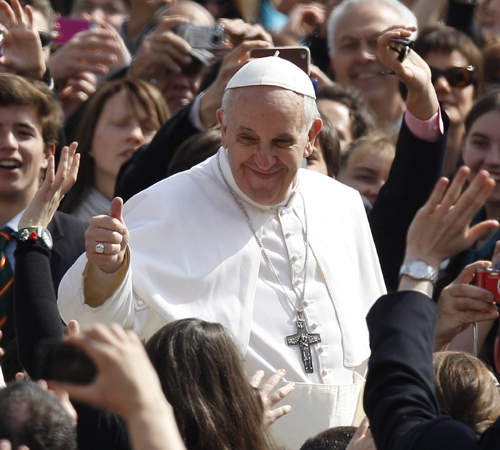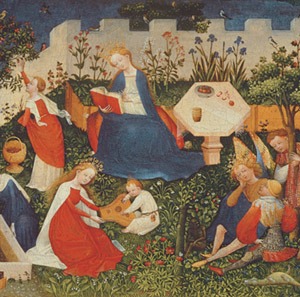
It was very easy for me to be a liberal Catholic when John Paul II and Benedict XVI were around: I was so angry there was no time to reflect on what I truly believed. Of course many of the Vatican Two Catholics and followers of liberation theology did leave the Church, going on to do their good, humane work outside the structures of this unfeeling, medieval princely kingdom. Those of us who stayed did so for a mixture of reasons: sloth; a desire to disrupt the reactionaries; perhaps even a subconscious unwillingness to be applauded by Professor Dawkins or Master Grayling, or even celebrated in the pages of New Humanist.
It is harder under Pope Francis though. His election is a brilliant argument for an active Holy Spirit. How could this bunch of old cardinals – all creatures of the largesse of either John Paul or Benedict – have thought to find such a leader? How did he even get into the room? Here he is restoring our belief in goodness: no hint of vanity; a total lack of interest in the trappings of power; an attractive ignorance of the pedantic minutiae of the Church he leads; above all a refusal to allow his conversations to be all about how bad the world is rather than how capable we all are of being (in the broadest, most humane of senses) righteous.
Then there is the positive power of guilt. The idea has had a bad press at least since Freud but Pope Francis shows how powerful it can be in the right mind. Clearly stuff went on in Argentina of which Francis is (to put it mildly) not proud. The man was young, almost certainly ambitious and he has changed. And learning from what was wrong in the past, and then acting on that learning, is a better penance than the mechanically spoken rosaries favoured by those for whom the Church is all about respecting rite, not doing right. Why Pope Francis cares deeply about the poor matters less than the fact that he does.
Does he go as far as the liberation theologians and find in the structure of society a cause of the poverty he clearly deplores? “Not yet” is the optimistic answer, “no and never” perhaps the more realistic one. Without a sense of why things are as they are, Francis won’t be the great reforming Pope so many want him to be. Poverty is no accident just as the existence of the Curia is not a mistake. These social and institutional facts flow from several judgements made by the powerful about how they want the world to be, namely favourable to them rather than the wider public interest. They are each huge enemies that will not be defeated by gestures. In this critical time when the Pope has his health and his reforming intent, it is vital he is not crushed by the naivety of his ambition. Civil society (yes, even the New Humanist) should row in behind him, being clear about where the differences are but enthusiastic about the common ground.
That will do for the atheists and agnostics, the non-Catholics even. But for liberal Catholics Pope Francis is harder. First there is his excoriation of material accumulation. Where does that leave affluent Catholics? The measure of our wealth being international, not London, we are all in his eyes rolling in dosh – should we give it away? What about those of us with big houses – hand rooms over to the poor? But there is more that is even harder. Pope Francis believes in the resurrected Christ, the central role of Jesus as the Son of God who was sent to save the world. We Catholics are all part of that extraordinary mission. What a thing to belong to! But do we believe? With John Paul and Benedict gone, and now Francis in place, we no longer have our useful anger with which to dodge this difficult question.

